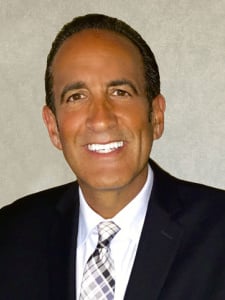When it comes to placing loved ones in nursing homes, we expect these facilities to provide proper care, safety, and dignity for residents. However, nursing home negligence is an unfortunate reality that can have devastating consequences for those in their care. We will discuss everything you need to know about nursing home negligence. From understanding your rights to building a case and finding the right representation, let’s explore how to recognize nursing home negligence and take appropriate action.
Know Your Rights
The first step to understanding nursing home negligence is to be aware of the nursing home residents’ bill of rights. These rights, which vary by state, outline the basic civil, legal, and human rights of those living in long-term care facilities. Some of the key rights include the right to be free from abuse and neglect, the right to privacy, the right to communicate with others, and the right to participate in care planning. It’s important to familiarize yourself with these rights and advocate for your loved one’s rights if they are being violated.
What Constitutes Negligence?
Nursing home negligence can take many forms, ranging from physical and emotional abuse to neglect and medical malpractice. Common examples of nursing home neglect:
- Physical Neglect: This includes lack of proper care in personal hygiene, nutrition, or hydration, failure to provide a safe environment which could lead to falls or accidents, and ignoring or not responding to requests for help.
- Medical Neglect: Failing to provide adequate attention, prevention, or medication for issues like infections, cuts, bedsores, or chronic disease management signifies medical neglect.
- Emotional Neglect: This could be in the form of ignoring the resident, not providing adequate activities for stimulation, or verbal abuse that can lead to emotional distress.
- Basic Needs Neglect: Failure to provide an adequate amount of food or water, or a clean and safe environment.
- Personal Hygiene Neglect: This occurs when residents are not given the necessary assistance with cleaning, bathing, oral care, or laundry.
Building a Case: How to Document Incidents
If you suspect nursing home negligence, it’s important to document incidents and gather evidence to support your case. This may include taking photos or videos of injuries or unsafe conditions, keeping a journal of incidents, and obtaining medical records and witness statements. It’s also important to report any incidents of neglect to the nursing home administration and regulatory agencies as soon as possible.
When to Contact a Lawyer
If you believe your loved one is the victim of nursing home negligence, it may be time to contact a lawyer. Some signs that it’s time to pursue legal action include a lack of response from nursing home staff or administration, repeated incidents of neglect, and serious injuries or illnesses caused by negligence. A nursing home negligence attorney can help evaluate your case and determine the best course of action for seeking justice and compensation.
Important Questions to Ask Your Attorney
- What experience do you have in dealing with nursing home negligence cases? Understanding the attorney’s past experience can help determine their ability to handle your case effectively.
- What outcomes have you achieved in similar cases? The attorney’s track record in similar cases can provide valuable insight into what you might expect.
- How will you approach my case? This question is essential to gauge the attorney’s strategy and thought process.
- What are your fees? It’s crucial to understand how the lawyer charges (hourly rate, flat fee, or contingency) and get a rough estimate of total costs.
- How frequently will we communicate about my case? This question helps set expectations for case updates and ongoing communication.
Speaking up to Protect Others
Reporting incidents of nursing home negligence can feel intimidating, especially if you’re concerned about retaliation or confidentiality. However, reporting issues is essential to protect other vulnerable residents and hold nursing homes accountable for their actions. You can report issues confidentially to regulatory agencies such as the Department of Health and Human Services or seek out advocacy groups and hotlines for support and guidance.
Looking Out for Your Loved Ones
If your loved one is experiencing neglect or abuse at their current nursing home, it may be time to consider a different facility. Some signs that it’s time to make a change include ongoing issues with staff, facilities, or administration, a decline in your loved one’s physical or emotional health, or a lack of trust or confidence in the nursing home’s ability to provide proper care.
The Emotional Toll: Caring for a Resident’s Wellbeing
Finally, it’s important to recognize the emotional toll that nursing home negligence can take on both residents and their families. Neglect and abuse can cause physical harm, but they can also have serious emotional and psychological consequences. As advocates for our loved ones, it’s essential to care for their wellbeing beyond their physical needs and support them through the emotional trauma of nursing home negligence.
Negligence in Nursing Homes: A Sad Reality for Many
Nursing home negligence is an unfortunate reality, but by understanding your rights, recognizing neglect, and taking appropriate action, you can protect your loved one’s health and safety. If you suspect nursing home negligence, don’t hesitate to document incidents, report issues, and seek out legal representation. Remember, speaking up not only protects your loved one but others in their care as well. By working together and advocating for vulnerable residents, we can hold nursing homes accountable and promote care, safety, and dignity for all.
Empowering Action
If you or a loved one has been a victim of nursing home negligence, Gioffre, Schroeder & Jansky Co., L.P.A is here to help you navigate through this difficult time. Our team of experienced legal professionals in Cleveland, Ohio is dedicated to advocating for the rights of nursing home residents and ensuring justice is served.
Don’t wait for the situation to worsen. Call us today at 216) 304-3532 or visit our website for a comprehensive consultation, and let’s work together to protect your loved ones and hold negligent parties accountable.
Your Attorneys for Life.
Have Any Questions?
If you need legal services throughout the Cleveland and Northeast Ohio area, contact the experienced attorneys at Gioffre & Schroeder. Our goal is to handle your case efficiently and in a manner that results in full compensation.






